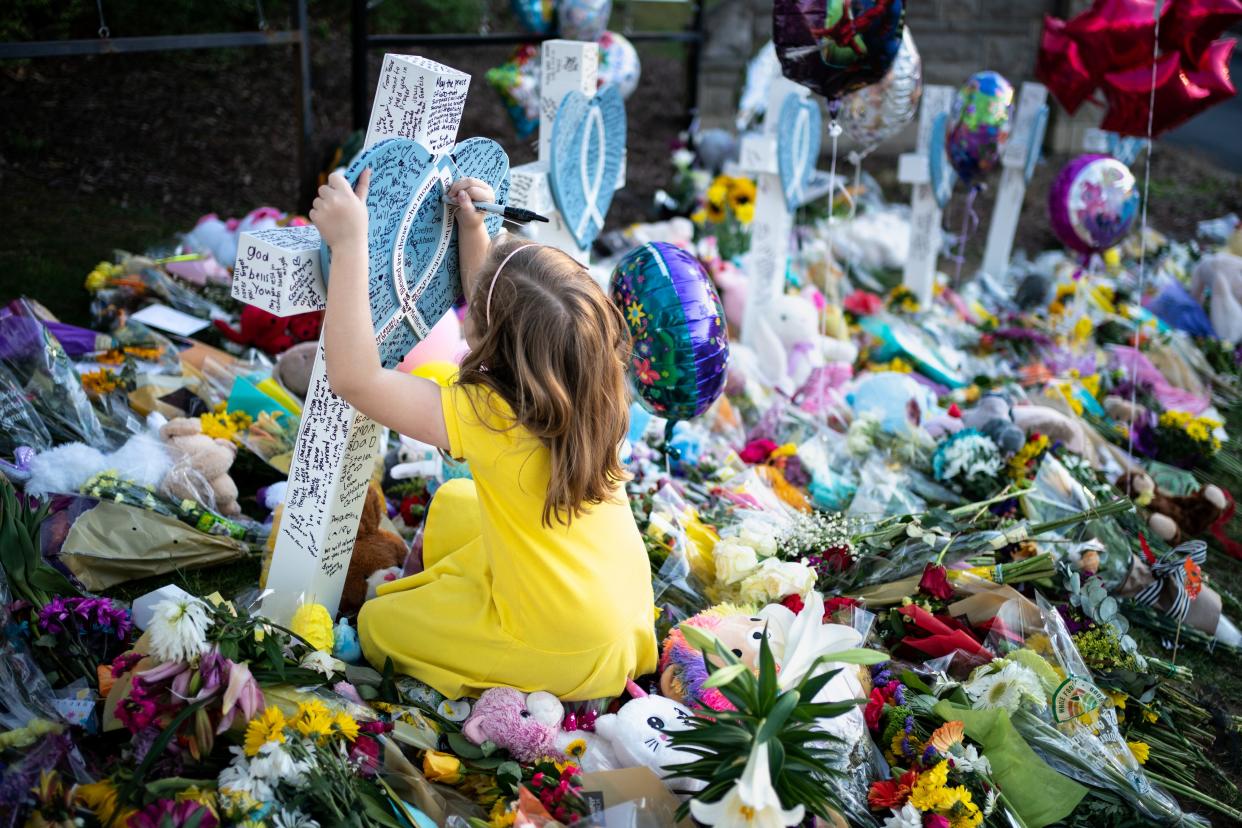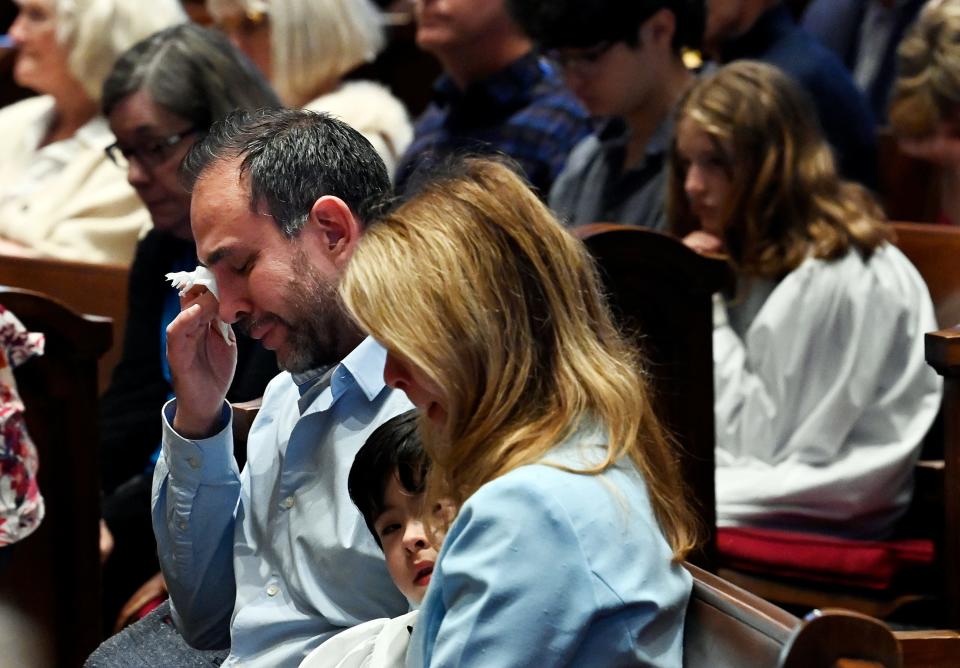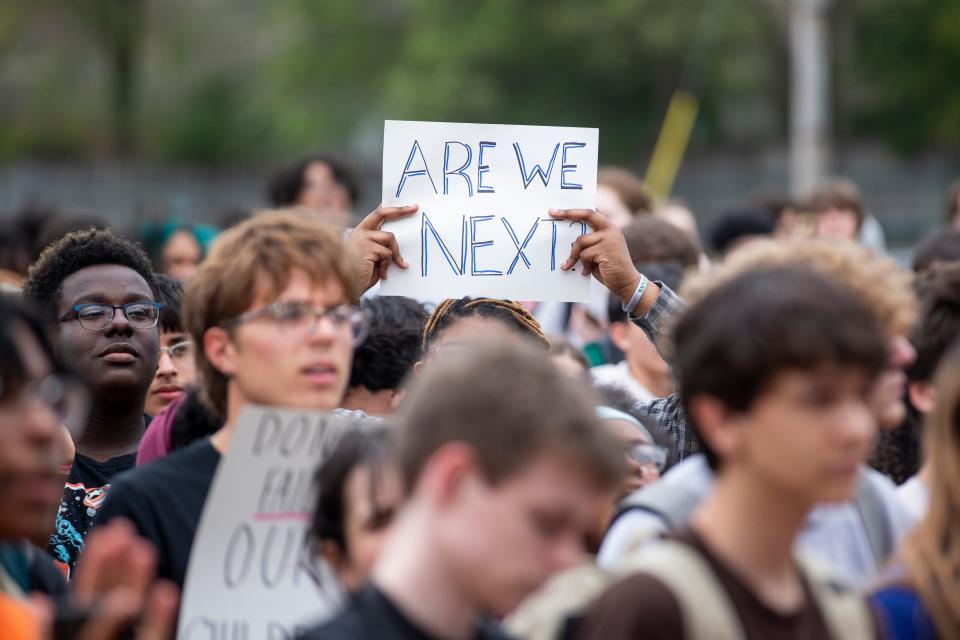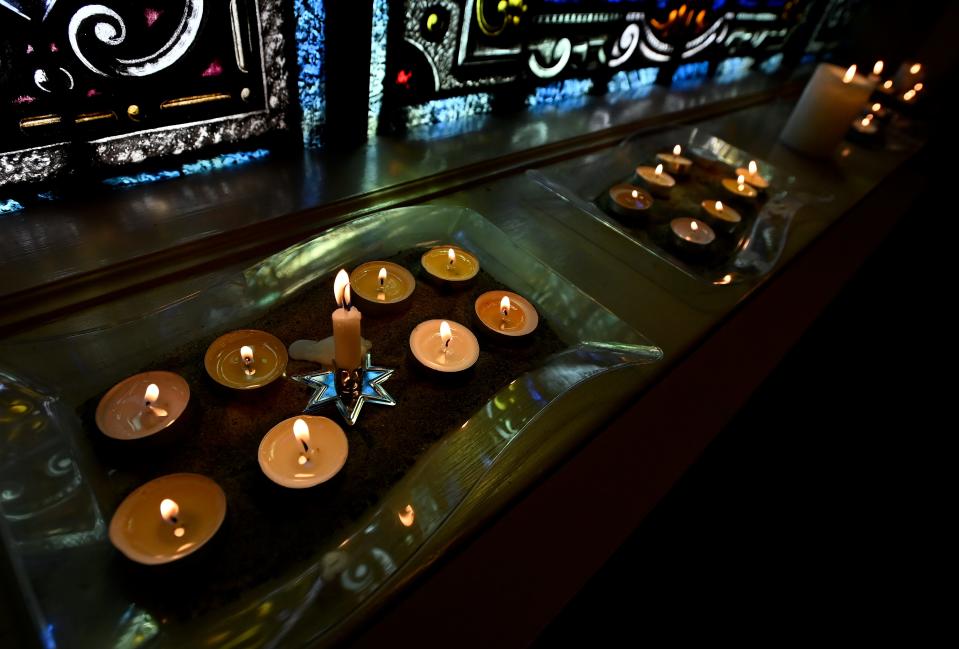Opinion: Faith community should be a reconciling voice

Another week, another tragic school shooting. This time the victims lived in Nashville. Like many Americans, I sit in silence and try to fathom why violence continues to be perpetrated in our schools and how it can be stopped. As a pastor, I wonder about how the faith community can respond, offer insight and possibly lead us to a place where we no longer have to worry about the safety of our children, teachers and staff in our schools. My reflections seem apropos at this time of year when we experience the confluence of the most sacred days for Christians, Jews and Muslims. What words of wisdom might we offer?
In response to these recurring, perplexing and painful school shootings, we might be inclined to bury our heads in the sand. Sometimes that is necessary for survival in the moment, but we can’t live life with our heads buried. Abraham Joshua Heschel, the wise rabbi of the last century, with roots in Cincinnati, said, "Anywhere injustice takes place, few are guilty, but all are responsible." He added that "indifference to evil is more insidious than evil itself" and "despair denies that God is present." One foundational tenet of all the world religions is hope. Hope manifests itself in peace, nonviolence and efforts toward the common good.

At its best, the religious community ought to be a reconciling voice in our nation that is so divided at present. Extremist talking heads have co-opted the conversation while the faithful too often sit silently on the sideline. Culture and politics understand matters as binaries, black and white, and literal. Faith understands that life is complicated and grey. The culture says that you are either pro-gun or anti-gun. This is untrue. There is a chasm of room in between, and the faith community ought to be the imaginative and reconciling voice that pulls each side toward solutions to end violence.
Regarding school shootings, there is ample space to address gun reform and all the other factors that contribute to mass violence, but first we must understand what is at stake. In 1962, in the context of the Vietnam War and nuclear threat, the Catholic spiritualist, and famed Gethsemani Abbey monk, Thomas Merton, wrote his "Prayer for Peace," in which he cautioned, "help us to be masters of the weapons that threaten to master us." When I speak with people from other countries I note that they are confounded by our seeming addiction to guns and the resultant gun violence. It would benefit us to hold that mirror of critique up for some honest reflection.

When our Founding Fathers wrote the Second Amendment to the Constitution, they had no concept of ordinary citizens toting around assault weapons manufactured for soldiers to carry out warfare. Surely, they would be appalled at our schools becoming killing fields. Imaginative and reconciling efforts say that we can satisfy those who want to own guns for protection and sport while assuring that guns do not master us to our harm.
As Christians reflect this week on the Garden of Gethsemane, we recall the words of Jesus that guide us toward the pursuit of change through nonviolent means, "All who take the sword will perish by the sword." Jesus, the Jew, was well-schooled in the hopeful vision of the prophets, such as Micah, who dreamed of swords beaten into plowshares and all people sitting under their own vines and fig trees with no one living in fear. As people of faith, we can respect those who hold the "sword" but not accept use of the "sword" to victimize the innocents.

As a faith community, peaceful, reconciled coexistence is our hope, but such a vision also demands responsibility. We are not the solution, but in this sacred time and season let us be reminded that we are signs and symbols of what can be and what is the will of God as we know it from our sacred texts and inspired teachers. Let’s join our voices and our efforts to be the force of reconciliation − to dream, imagine, and live into the peaceable kingdom, most especially for the sake of our children and our schools.
Rev. Henry Zorn is pastor of Lutheran Church of the Resurrection in Anderson Township.
This article originally appeared on Cincinnati Enquirer: Opinion: Faith community should be a reconciling voice

